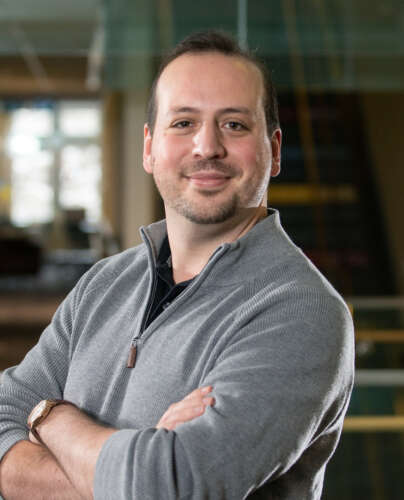Is gig work still considered a side hustle? A recent report from Statistics Canada finds that nearly 900,000 Canadians who are gig workers have made it their full-time job.
Prof. Thomas Sasso, business professor at the University of Guelph’s Gordon S. Lang School of Business and Economics, is not surprised. His research looks at how to improve working conditions in the gig market, creating better protections, equity and safety for people.

His ongoing research project – with collaborators – explores drag performance as gig work. Often associated with food delivery drivers or other app-based service providers, gig work is loosely defined as temporary or freelance work performed by independent contractors on an on-demand basis, and it is transforming the job market.
Speaking recently with Global News, Sasso says gig work is often considered “task-based work” that is “time-limited” meaning there is no long-term contract in place for an employee.
That can lead to job instability, a lack of health insurance, or protection under employment standards legislation, he argues.
According to Stats Canada, there are 871,000 Canadian gig workers who work those jobs full-time. Harvard Business Review pegs that number at 150 million across North America and Western Europe.
Sasso says that number reflects how gig work has become a necessity. “That means our employment systems are failing and our social structures are failing to ensure that people have the basic needs to live a healthy, productive life,” he told Global News.
Sasso is advocating for better education around gig work so that workers understand their rights and to help shift the perception of gig work away from just a side job.
Co-founder of the Sexual and Gender Diversity Research Lab, Sasso is also the Equity, Diversity and Inclusion coordinator at Lang. His research in the Department of Management at Lang focuses on understanding and improving the experiences of diverse and marginalized populations across industries and sectors, with a particular focus on LGBTQ2IA+ communities.
Sasso is available for interviews.
Contact:
Prof. Thomas Sasso
tsasso@uoguelph.ca
